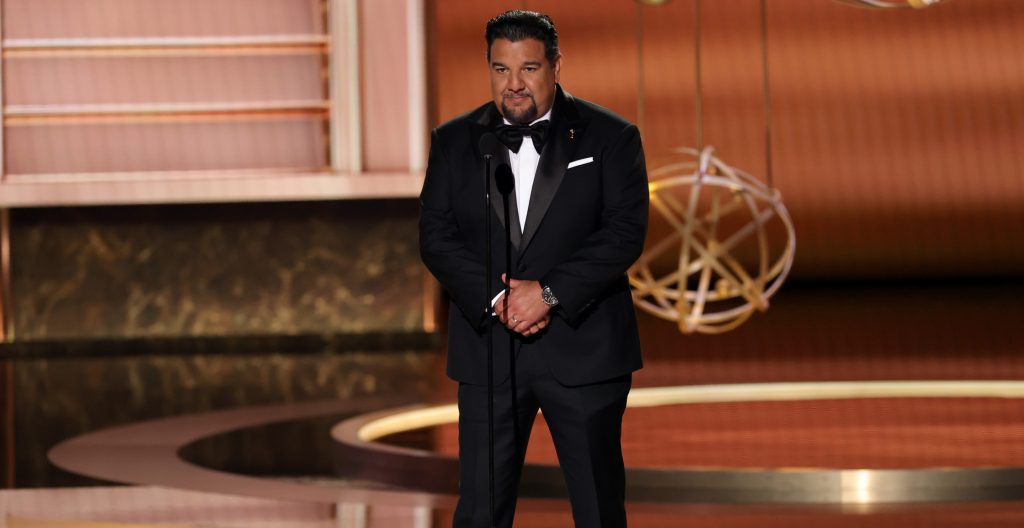There were many cheers and a few standing ovations at the Emmys, but also a loud chorus of boos.
Those jeers were directed at Congress for voting to defund the Corporation for Public Broadcasting, putting in jeopardy the future of some stations and forcing major cuts at PBS and NPR.
Academy Chairman Cris Abrego opened his speech by noting that the Emmys honored the CPB last week at the Creative Arts ceremony.
Noting some of the programming funded by CPB, he noted Sesame Street and Finding Your Roots, and then said, “In many small towns, those stations weren’t just a cultural lifeline, they were the only Emergency Alert System families could count on. But at the end of this year, CPB will close its doors because Congress has voted to defund it.”
The audience booed.
He then went on to say that it was another example where “yet another cultural institution” had been silenced, “and that’s a reminder of just how much our work here matters, especially right now. In a time when division dominates the headlines, storytelling still has the power to unite us.”
In July, at the request of Donald Trump, voted to rescind $1.1 billion from the CPB, which was created in 1967 to distribute funds to public media outlets.
Abrego did not name the assassination last week of Charlie Kirk, which has again focused attention on the rise of political violence in the country and the toxic nature of social media.
Abrego directed the rest of the speech to television’s potential for positive influence and the need for a wider variety of diverse voices.
“Television and the artists who make it do more than reflect society,” he said. “They shape our culture, and in times of cultural regression, they remind us what’s at stake and what can still be achieved. MASH, Roots, the late great Norman Lear’s entire body of work, Will & Grace, The Handmaid’s Tale, South Park, the legacy of late night. For generations, artists have seized the power of television to broaden horizons, challenge the status quo and bend that arc of history towards justice.
“The Television Academy and all of us in this room must continue to champion that power and wield it responsibly. In moments like this, neutrality is not enough. We must be voices for connection, inclusion, empathy because we know that culture doesn’t come from the top down. It rises from the bottom up. Culture belongs to the people. So if our industry is to thrive, we need to make room for more voices, not fewer. That’s the work of the Television Academy. Today, we are almost 30,000 strong, the largest, youngest and most diverse body in our history. And with that diversity comes a strength, imagination and courage our industry needs to move forward. So let’s do that together. Let’s keep telling stories, and let’s make sure that culture is not a platform for the privileged, but a public good for all.”
